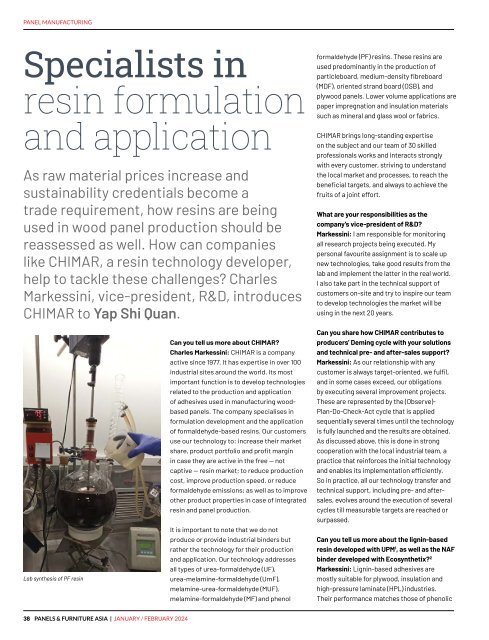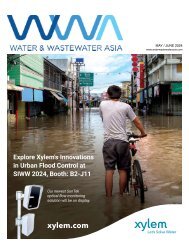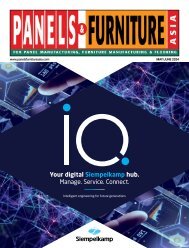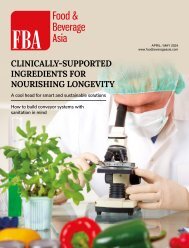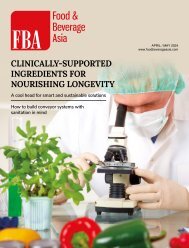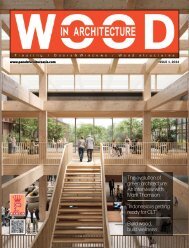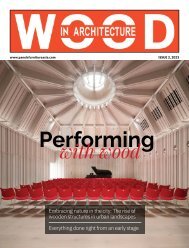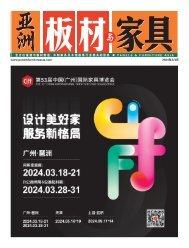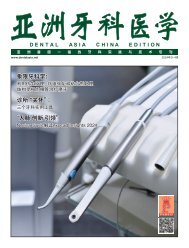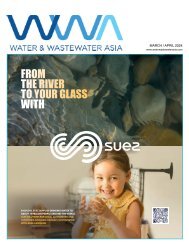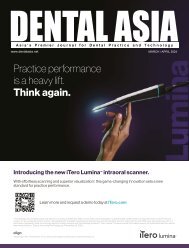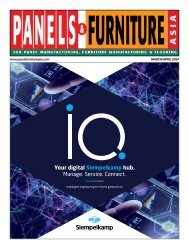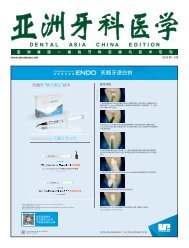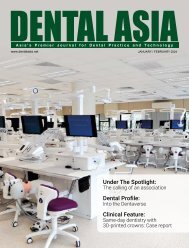Panels & Furniture Asia January/February 2024
Panels & Furniture Asia (PFA) is a leading regional trade magazine dedicated to the woodbased panel, furniture and flooring processing industry. Published bi-monthly since 2000, PFA delivers authentic journalism to cover the latest news, technology, machinery, projects, products and trade events throughout the sector. With a hardcopy and digital readership comprising manufacturers, designers and specifiers, among others, PFA is the platform of choice for connecting brands across the global woodworking landscape.
Panels & Furniture Asia (PFA) is a leading regional trade magazine dedicated to the woodbased panel, furniture and flooring processing industry. Published bi-monthly since 2000, PFA delivers authentic journalism to cover the latest news, technology, machinery, projects, products and trade events throughout the sector. With a hardcopy and digital readership comprising manufacturers, designers and specifiers, among others, PFA is the platform of choice for connecting brands across the global woodworking landscape.
You also want an ePaper? Increase the reach of your titles
YUMPU automatically turns print PDFs into web optimized ePapers that Google loves.
PANEL MANUFACTURING<br />
Specialists in<br />
resin formulation<br />
and application<br />
As raw material prices increase and<br />
sustainability credentials become a<br />
trade requirement, how resins are being<br />
used in wood panel production should be<br />
reassessed as well. How can companies<br />
like CHIMAR, a resin technology developer,<br />
help to tackle these challenges? Charles<br />
Markessini, vice-president, R&D, introduces<br />
CHIMAR to Yap Shi Quan.<br />
formaldehyde (PF) resins. These resins are<br />
used predominantly in the production of<br />
particleboard, medium-density fibreboard<br />
(MDF), oriented strand board (OSB), and<br />
plywood panels. Lower volume applications are<br />
paper impregnation and insulation materials<br />
such as mineral and glass wool or fabrics.<br />
CHIMAR brings long-standing expertise<br />
on the subject and our team of 30 skilled<br />
professionals works and interacts strongly<br />
with every customer, striving to understand<br />
the local market and processes, to reach the<br />
beneficial targets, and always to achieve the<br />
fruits of a joint effort.<br />
What are your responsibilities as the<br />
company’s vice-president of R&D?<br />
Markessini: I am responsible for monitoring<br />
all research projects being executed. My<br />
personal favourite assignment is to scale up<br />
new technologies, take good results from the<br />
lab and implement the latter in the real world.<br />
I also take part in the technical support of<br />
customers on-site and try to inspire our team<br />
to develop technologies the market will be<br />
using in the next 20 years.<br />
Lab synthesis of PF resin<br />
Can you tell us more about CHIMAR?<br />
Charles Markessini: CHIMAR is a company<br />
active since 1977. It has expertise in over 100<br />
industrial sites around the world. Its most<br />
important function is to develop technologies<br />
related to the production and application<br />
of adhesives used in manufacturing woodbased<br />
panels. The company specialises in<br />
formulation development and the application<br />
of formaldehyde-based resins. Our customers<br />
use our technology to: increase their market<br />
share, product portfolio and profit margin<br />
in case they are active in the free — not<br />
captive — resin market; to reduce production<br />
cost, improve production speed, or reduce<br />
formaldehyde emissions; as well as to improve<br />
other product properties in case of integrated<br />
resin and panel production.<br />
It is important to note that we do not<br />
produce or provide industrial binders but<br />
rather the technology for their production<br />
and application. Our technology addresses<br />
all types of urea-formaldehyde (UF),<br />
urea-melamine-formaldehyde (UmF),<br />
melamine-urea-formaldehyde (MUF),<br />
melamine-formaldehyde (MF) and phenol<br />
Can you share how CHIMAR contributes to<br />
producers’ Deming cycle with your solutions<br />
and technical pre- and after-sales support?<br />
Markessini: As our relationship with any<br />
customer is always target-oriented, we fulfil,<br />
and in some cases exceed, our obligations<br />
by executing several improvement projects.<br />
These are represented by the (Observe)-<br />
Plan-Do-Check-Act cycle that is applied<br />
sequentially several times until the technology<br />
is fully launched and the results are obtained.<br />
As discussed above, this is done in strong<br />
cooperation with the local industrial team, a<br />
practice that reinforces the initial technology<br />
and enables its implementation efficiently.<br />
So in practice, all our technology transfer and<br />
technical support, including pre- and aftersales,<br />
evolves around the execution of several<br />
cycles till measurable targets are reached or<br />
surpassed.<br />
Can you tell us more about the lignin-based<br />
resin developed with UPM 1 , as well as the NAF<br />
binder developed with Ecosynthetix? 2<br />
Markessini: Lignin-based adhesives are<br />
mostly suitable for plywood, insulation and<br />
high-pressure laminate (HPL) industries.<br />
Their performance matches those of phenolic<br />
38 PANELS & FURNITURE ASIA | JANUARY / FEBRUARY <strong>2024</strong>


